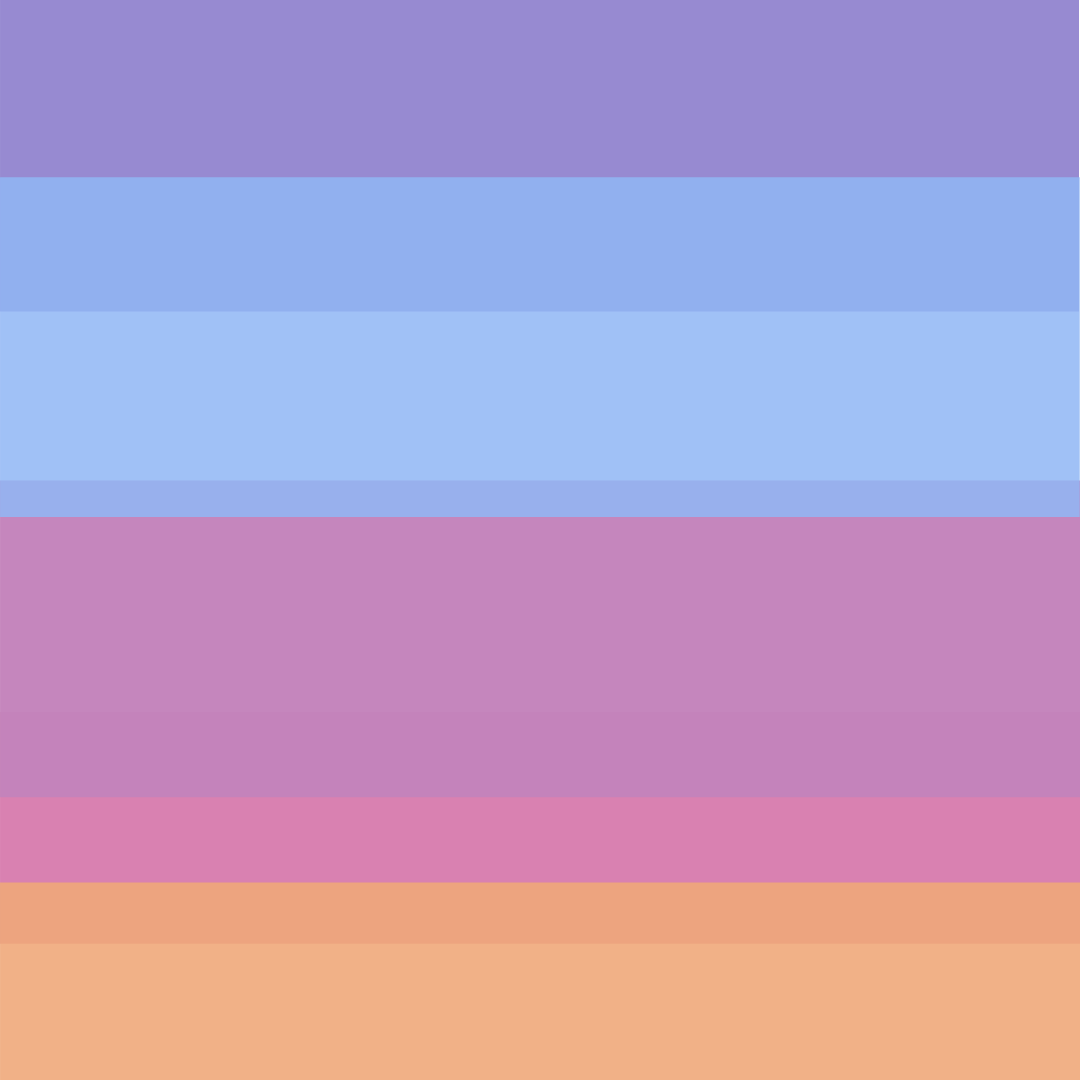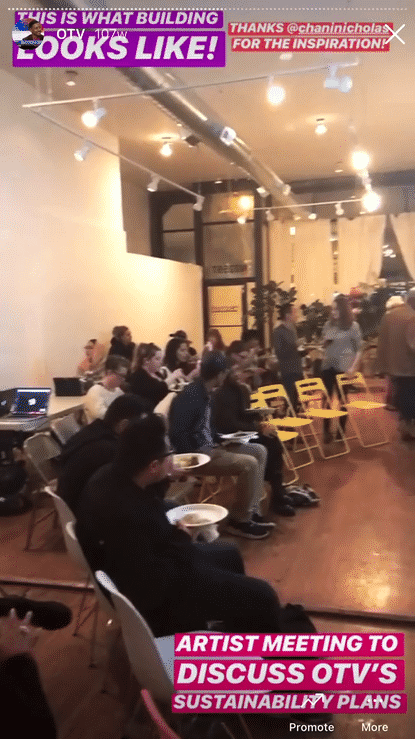
introducing OTV Studio
MARCH 2, 2021
By Aymar Jèan Christian
Department of Communication Studies
Northwestern University
This essay was written several years into an R&D process to determine whether a for-profit company could “spin-off” of the non-profit OTV | Open Television. After Lilly Wachowski joined the team, I wrote this article to explain the R&D process and my relationship to and hopes for the for-profit company. The next year, the company’s leadership decided to rebrand to distinguish itself from and stay independent of the OTV non-profit. The company grew past the seed phase and no longer needed my involvement, which could present conflicts of interest in the future if I started to earn income. Thus, I left the company in 2022 but continue to advise its growth without financial compensation.
“Introducing OTV Studio” is presented here for archival and accountability purposes.
Today I am announcing the launch of a new company spinning off from the OTV | Open Television non-profit: OTV Studio!
OTV Studio is an incubator for intersectional artists and their projects. Its goal is to rewire film and television by developing artists and producing their short-form content to accelerate discovery and long-form development with an array of mission-aligned studios, production companies, and institutional partners.
OTV Studio’s CEO is Stephanie Jeter, formerly Head of Production for the non-profit. She is leading a team who includes famed writer-director-executive producer Lilly Wachowski as our head of creative development, Julie Keck as chief business development officer and Oscar Dang as our strategic advisor. I am a co-founder and advisor to the organization, but I do not work for it; I am still retaining my full-time job as a tenured professor at Northwestern University.
OTV Studio does not replace OTV | Open Television.
OTV | Open Television remains a non-profit distribution platform, focused on developing emerging artists and releasing their shows independent of Hollywood.
OTV Studio is a for-profit incubator, focused on managing artists and selling their shows to larger production companies and distributors in Hollywood.
OTV Studio supports the non-profit by offering opportunities to artists who are willing and able to work full-time in the industry; some profits from the Studio will support our communities and/or the next generation of artists, cultivating an equitable, sustainable media ecosystem for as many diverse artists as possible.
Today’s launch was nearly 3 years in the making, a process shaped by feedback from our artists and various industry stakeholders. Below is a full account of how this company came about, who is involved, how it will work and what you can expect in the coming years.
Why OTV Studio
Launching a for-profit company is a decision I took very seriously and pursued reluctantly. I am a scholar first and foremost. For over a decade I’ve based my research on critiquing capitalism.
The initial idea for the OTV experiment was based on my first book, Open TV, a study of how indie TV production critiques corporate/capitalist practices. I view capitalism and creative markets from a critical perspective. The industry inconsistently values the labor of Black, brown and people of color, women, queer and trans people. Often we are undervalued. Most media studies and histories say that is unlikely to change. OTV was designed to invert the industry’s extractive practices and experiment with building an infrastructure outside the corporate system.
Building OTV completely outside of capitalism was exciting in theory but impossible in practice. There is little sustainability outside of capitalism in the U.S. Indeed, during OTV’s early years I was frequently encouraged to pursue revenue opportunities for all the work we were putting in for free. OTV wasn’t making any revenue. I was losing money on OTV in its early years, donating thousands of dollars to keep it going even as I was unable to offer raises to the staff or pay higher licensing fees to artists.
The seeds of OTV Studio were planted in the wake of the sale of Sam Bailey & Fatimah Asghar’s Brown Girls to HBO in 2017. After the sale, Hollywood started reaching out to me asking for general meetings, and I could feel the extractive desire to own our artists and their stories now that diversity was “hot.” Still, I believe many people were also genuinely interested in supporting our mission and expanding diversity on TV. In July 2017 Max Saines, a former student of mine who worked for WME, the agency with the most stake in TV, emailed me excitedly about the HBO news and requested a phone call. He was inspired by our mission and told me that people in Hollywood were talking about OTV. He said he could get me meetings if I ever came to LA. I had a ticket to a few Emmys parties that fall since Brown Girls & OTV were nominated.
I was teaching and only had two days, and still Max secured general meetings with executives at most of the leading distributors, e.g. HBO, Starz, FX, Showtime and more. I was shocked. Though I was aware from my research that dozens of indie series have sold to major networks, I had no evidence of an indie channel catching their eye. I returned to LA in the spring of 2018 to meet with more networks and a few production companies, with some meetings set up by Max and others from people who reached out to me individually (Max passed away in 2019 and I hope he will be remembered as an ally who championed inclusion even when it would not necessarily benefit him financially, a model all white people should aspire to; he was warm, smart and gracious).
After my second round of general meetings I realized a problematic dynamic was emerging. The lightbulb moment came in a meeting I had with the CEO of a well-known production company, who said that coming to LA as a non-profit leader was a waste of time, since Hollywood is driven by money whereas I was driven by intellectual curiosity and desire to help my collaborators. These desires were not irreconcilable—at least in theory. There were several mission-driven and practical reasons to engage the industry.
At the same time, there were several reasons why engaging the industry could help OTV better fulfill its mission and improve upon flaws in the non-profit’s model:
As a non-profit OTV could not support emerging artists in transitioning from indie, where it virtually impossible to make a living, to corporate, which controls nearly all sustainable, unionized employment in TV.
In intro and exit interviews with OTV artists, nearly all expressed a desire to work in Hollywood, yet the OTV non-profit was not set up to support this systematically.
As a non-profit OTV was either perpetuating or insufficiently challenging inequality.
By celebrating indie works, we were implicitly encouraging people to make short-form content for tiny budgets, only to have the top 10% of projects sell for five- or six-figures to corporations in LA, who could go on to make millions. 90% of OTV artists would be left behind, having invested so much time and money, as executives extract what they want and leave the rest to go deeper into debt and try again.
Sending artists to LA without an infrastructure for support potentially disadvantaged them in negotiations,
where the industry norm is increasingly to own 100% of an artist's intellectual property. Creating a company that collectivized intellectual property would increase the likelihood of artists having at least some intellectual property interest and control over their projects.
Sending artists to LA without representation made it more difficult for them to gain employment and quality deals,
as I noticed in one case of an artist who received an exploitative offer from a large network and had no access to credible representation.
Many projects by and about people of color are still owned by white-owned corporations, perpetuating racial inequalities.
There was still a need for a Black-owned production/management company, despite the emergence of some high-profile companies from celebrities.
In the spring 2018 I gave a presentation on OTV at Northwestern University’s anniversary event, CommFest, and after my presentation, Oscar Dang, then an MBA student at Northwestern’s business school, approached me asking if I’d ever thought of creating a for-profit entity. By that time I was ready, and we spent the rest of 2018 creating the initial model for OTV Studio, based on the tech incubator model where artists are given mentorship, financial support and access to social networks in exchange for the company taking a percentage of sales and employment.
I approached Stephanie Jeter and asked her if she’d be interested in running OTV Studio. She was the only intersectional artist I knew with an exemplary creative practice, deep knowledge of how to execute complex corporate studio productions, and a commitment to equity (supporting artists beyond the ones she knew personally). Stephanie expressed excitement as nurturing emerging artists is a passion of hers. With that, OTV Studio was born!
Developing OTV Studio
Our first goal before formally launching OTV Studio was to get feedback from the artists who made OTV possible in the first place. In January 2019 we hosted around 60 artists at Reunion in Humboldt Park who had released or developed projects with the platform up until that point; it represented a majority of the people we had supported. I gave a 90-minute presentation detailing the plan I developed with Oscar, the core of which was OTV creating a for-profit entity to develop/sell projects and find opportunities for artists ready to make the jump to Hollywood.
After my presentation we surveyed our artists, who spent a lot of time giving us feedback, expressing what excited them and their concerns. 31 people in attendance completed the survey and the results were coded by my research assistant and PhD student Chelsea Peterson-Salahuddin. Her report can be read in full HERE.
Here were my most important conclusions from artists’ feedback:
Benefits of mentorship & management - Many artists expressed the value of getting mentorship from OTV Studio to support them navigating the industry and getting jobs; managers typically provide this guidance and we found support for OTV managing artists.
Concerns about intellectual property - Some artists expressed concerns about how to safeguard their IP in Hollywood and how OTV would affect their ability to do so.
Concerns about OTV continuing to provide support for emerging artists - Some expressed concern that the for-profit would eclipse the work of the non-profit. I read these responses as some thinking the for-profit would replace, rather our plan is to supplement, the non-profit’s activities.
To address the concerns, we ensured our process matched our values:
Culturally Authentic & Ethical Representation: OTV Studio is representing writer-directors but we are taking a smaller fee than most management companies and our agreements are non-exclusive (for now).
Collective Intellectual Property Ownership: OTV Studio was always designed to and continues to commit to sharing -- not fully owning -- artists’ intellectual property.
Cultivating Collective Wealth & Sustainable Ecosystems: The OTV Studio does not replace the OTV non-profit platform but rather supports its mission by providing an infrastructure to support the transition to Hollywood and our broader community.
In addition, we also believed that OTV Studio could directly invest in short-form projects, narrowing the vast inequality where independent producers have great stories but lack access to capital to film them at a level of production value that would serve their careers and attract their communities online.
Through 2018 and 2019 Oscar and I made a couple more trips to LA to get feedback on our model from executives I had already met or new ones who contacted me. People were very encouraging, though many acknowledged our model was uncommon and would be difficult (of course, today, more people in Hollywood are now pursuing similar models). The outcome of these meetings was a deeper commitment to focusing on intellectual property development and artist management, leaning into IP development.
OTV Studio Artists, Projects & Staff
Once we felt we had community buy-in, we set about creating the first “slate,” the TV series and films OTV Studio would manage and develop.
I wanted the process of developing the OTV Studio slate to be as open, grassroots and Chicago-focused as the non-profit, avoiding a nationwide call-for-ideas that we didn’t have capacity to manage.
So in early spring 2019 I emailed nearly 200 writers, directors and producers who had worked with or pitched OTV since the non-profit was founded in 2015. I asked individuals to send us pitches for their shows. We received over 70 submissions. The OTV team then read through all of the pitches and scored our favorites. The top 20 projects became the first OTV slate.
After we onboarded longtime OTV supporter and collaborator Julie Keck to manage our partnerships and business relationships, Stephanie, Julie and I flew to LA in the first-quarter of 2020 for the first time as OTV Studio. We primarily met with executive producers and production companies to explain the company and gauge interest. We were just in time. Soon after our last meetings, word of the COVID pandemic made the news and within weeks the nation was on lockdown. Throughout 2020 we worked remotely to support our artists and pitch our projects, with some success.
On New Year’s Eve 2020, after a few months of meetings and negotiation, Lilly Wachowski joined OTV Studio as a creative development partner. Lilly will be mentoring artists, offering feedback on scripts, serving as an industry ambassador, with the option to executive produce projects on our slate. Lilly is no stranger to OTV, having attended events dating back to 2018. We trusted her intentions were pure as we were already aware of her supporting younger artists of color behind-the-scenes with little fanfare. We’re thrilled she has decided to support this innovative endeavor!
My Stake in OTV Studio & Plans to Cultivate Collective Wealth
As a co-founder of OTV Studio I am committed to building a strong foundation for the organization. But I am not an employee of OTV Studio. Outside of my full-time job at Northwestern University, my commitment remains with the OTV non-profit, where I am currently Head of Research & Organizational Development, a part-time contract position where my primary responsibilities are: writing grants, supporting fundraising and operations, advising the OTV team based on my research and experience running the platform for 5 years, and analyzing data (interviews with artists/community to assess OTV’s performance, social media analysis, tracking the fields OTV operates in, and more).
For OTV Studio my role is to advise the Studio on its strategy based on my years of research on TV history and industry practices and to introduce the company to the industry stakeholders who approached the non-profit for partnership before the for-profit existed.
As of this writing (March 2021) I have a 48% ownership stake in OTV Studio. I do not plan to retain complete ownership of this stake. My goal is to use my stake to benefit the OTV non-profit and/or the broader communities we serve.
Here are some ways I have envisioned leveraging OTV Studio for collective wealth, all of which I would consider if they pass legal muster:
Committing profits from all or most of my stake to benefit a Community Trust
The Trust would be administered by a rotating community board who would decide how the funding would be spent
Funds could go to support youth media, first-film financing, grants to BIPOC small businesses or non-profit charities benefiting communities aligned with intersectionality
Committing profits from all or most of my stake to benefit the OTV Platform
This supports the “ecosystem” view of transforming media, because the platform offers a range of programs to benefit new or emerging storytellers in ways that support a public service mission
This is a way to ensure that the “Hollywood” success of OTV Studio supports the next crop of storytellers, so that everyone has a fair shot at “making it”
This may prove legally tricky if OTV non-profit artists graduate to work with OTV Studio
Developing a pathway to OTV Studio for artists who have worked with the OTV Platform
This ensures that OTV Studio is pulling from emerging diverse storytellers who don’t already have access to Hollywood
It avoids the “trap” of other efforts that forsake their original mission of supporting under-represented storytellers in favor of those who are already famous
Selling my stake to a Trust or to the Platform
If none of the above are possible, I am open to selling my entire stake, though this decision would have to be made with OTV Studio’s leadership and investors
Depending on the legal basis, we could pursue multiple of these pathways.
OTV Studio is still raising start-up funds, hence why we have not committed to a plan on collective wealth. We estimate it will take at least a couple of years for OTV Studio to see any significant profit from its activities. Thus, we have a lot of time to work out the precise model for how OTV Studio contributes to collective wealth for artists and communities who have been historically denied access to capital for generations.
I am committing to continuing to be transparent about how OTV Studio develops, the status of my ownership stake and how that money is used. I ask my community, our collaborators and anyone reading this to hold me accountable but also for patience and grace, knowing that both the OTV Studio and OTV non-profit teams are also committed to this process of accountability and collaboration takes time. I am inspired by the people in Hollywood who appear to be using their access to Hollywood to support emerging creators, e.g. the likes of Issa Rae, Ava DuVernay and Lena Waithe who have learned from the mistakes of prior generations and are disrupting business-as-usual in production, distribution and management. This is difficult, long-term systems change work, even when you’re nationally and globally famous like the people above, let alone when you lack such name recognition.
How To Work With OTV Studio
Prospective creative partners and investors who want to support OTV Studio can reach out to us on the website, on social media or to me directly.
Currently, OTV Studio is not onboarding new artists and projects as we are at capacity and still actively fundraising. Artists interested in working with OTV Studio in the future can reach out to us on its website. OTV Studio will be announcing ways for artists to get involved when the company is ready to do so responsibly.
We promise we will read every email that comes in!
We are also developing ways for artists working with the OTV non-profit to gain access to OTV Studio, but we do not expect to launch any new programs in 2021 as all plans must be vetted by legal counsel so as not to endanger the platform’s tax-exempt status.
Next Steps for OTV Studio
Developing film and television in Hollywood is a slow process. It takes years to go through all the stages necessary to see a project through to release. These stages are:
Story Development: writing the script and relevant story pitch elements
Securing Production Development Deals: finding studios and executive producers to support development
Securing Distribution Development Deals: finding networks/channels who will license/release/buy the rights to develop a project; news of a “development deal” does not mean a project will be made!
Securing Pilot/Series/Film Production: after working with network development executives on the script, TV series are historically sold for pilot production before getting series orders; straight-to-series orders are increasingly common but less so for new companies.
Green light! After a pilot or short film is successful, a full season or feature is ordered, slated for release, marketed, and if successful, more seasons are ordered (for TV).
Right now, OTV Studio is in stages 1) and 2). In addition, keep in mind that OTV Studio is at the same time fundraising for basic operational costs as we work to get artists opportunities in writers rooms, directing for television or support for short-form productions.
Historically, this entire process of selling and releasing a series or film can take at least 2-3 years and frequently more than 5 years. Issa Rae’s Awkward Black Girl premiered in 2011 on YouTube but on HBO in 2016; Lena Waithe’s Twenties premiered on YouTube in 2013 but not until 2020 did it premiere on BET. Some series like The Queen’s Gambit can take up to 30 years to materialize. We believe we can work faster because we’ve been building relationships in Hollywood for years, but we also believe that in life anything worth having takes time. We are also aware that Hollywood’s interest in diversity has not been consistent historically -- consider there were more Black TV shows in the 1990s than in the 2000s. Diversity rises and falls as technology, regulation and conglomeration change the rules of the game.
I have big hopes for OTV Studio, tempered by my knowledge of how fickle and conservative Hollywood can be.
As OTV Studio works to change the industry from the inside, remember the OTV | Open Television platform is fully-funded and working diligently to change it from the outside!
In solidarity,
Aymar Jèan Christian
Associate Professor, Communication Studies, Northwestern University
Co-founder / Head of Research & Organizational Development, OTV | Open Television
Co-founder, OTV Studio





